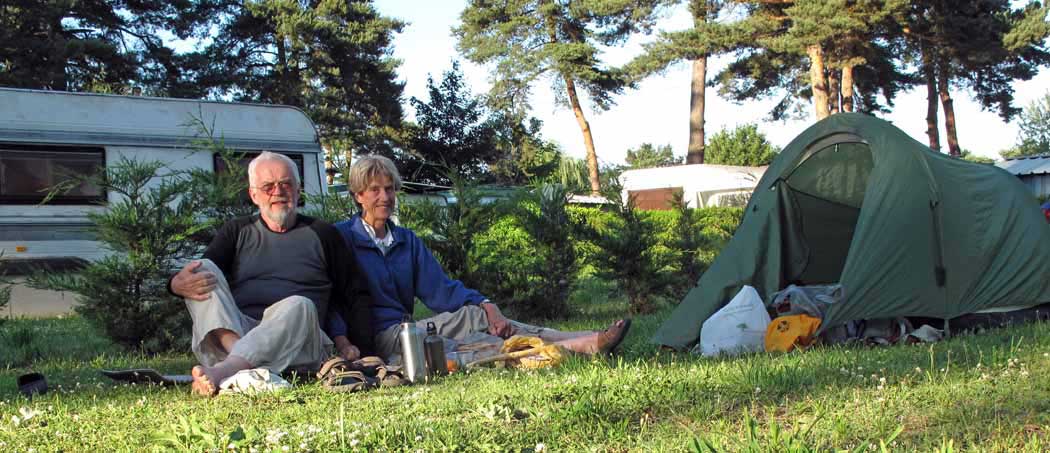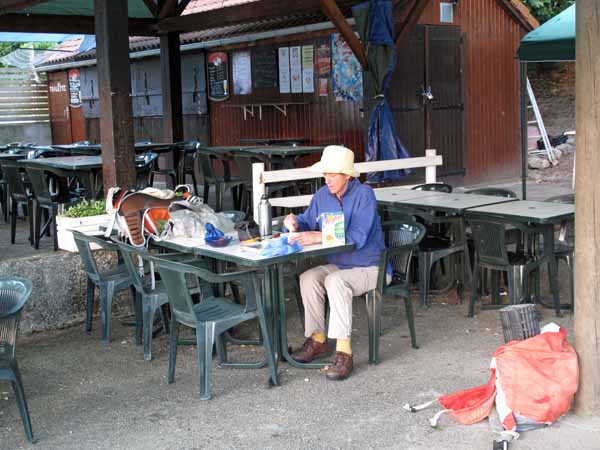
Thursday, 30 June 2011
Distance 14 km
Duration 3 hours 0 minutes
Ascent 175 m, descent 178 m
Map 149 of the TOP100 lime-green series
Topoguide (ref. 4304) Gorges de la Loire sauvage
We rose at 6 am and had our muesli at one of the tables in the deserted snack bar.
I was still suffering from the after-effects of the ‘flu with which I had set off two weeks earlier, although I was greatly improved.
By now I only had a general feeling of tiredness, which was much better than the fever, bone-aches and hacking cough that I had started with.

The day of rest had done us good but we still did not fancy the steep, zigzagging goat track of the GRP as it left the camping ground, so we stuck to the road, empty at that hour, and climbed more sedately, with the river ever further below on our left.
After three or four kilometres the GRP came down to meet us and we left the road, descending on a stony track to water level. It was the original road through the gorge and the stones were the remains of the cobbled surface.
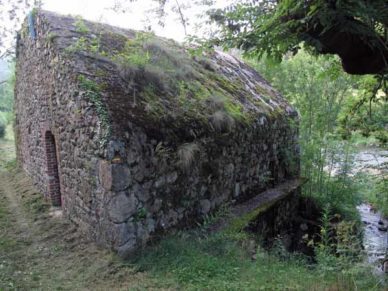
We passed a water-mill, disused and overgrown, and soon found ourselves back on the bitumen highway (the D46), which we walked beside for half an hour. Meanwhile the GRP went wandering into the hills but we rejoined it when it came down to the road.
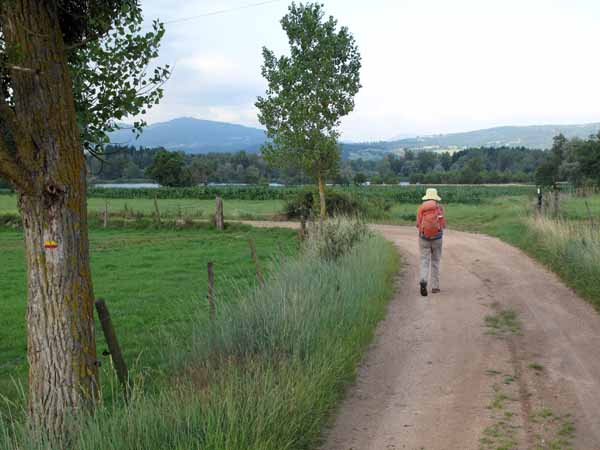
At this point the river gorge opened out into an expanse of cultivated fields, as flat as a lake, with the Loire far away behind the trees.
Following a series of farm tracks, we arrived at the hamlet of Lamure with its handsome little church, perched on a slight ridge. Every time the river flooded, it must have been an island.
Beyond Lamure the track wove its way through ancient gravel-pits and sand quarries, interspersed with stretches of water. Gravel extraction was formerly the main industry of the village of Bas-en-Basset and the ponds that resulted are now a paradise for fishermen and waterbirds.
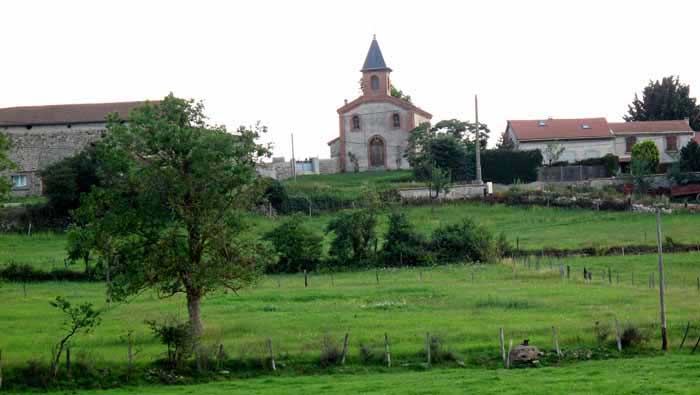
A dirt road led us out of this strange landscape, through a pine plantation and into open land.
Before long we arrived at the levee bank of the Loire, behind which the first caravans and tents of the camping ground could be seen, enclosed by a tall fence.
However, it was an enormous camping ground and we walked half a kilometre before we came to the entrance, which was at the far end, closest to the town.
Then we were told that there were no vacant spots except at the very back, where we had just come from, the reason being that nearly all the sites were occupied permanently by ramshackle cottages.
It was more of a shanty town than a camping ground, but we were not complaining, as it was only 9:30 in the morning and our day’s exertion was over. Having found a place for our tent, we had showers in the sparkling ablutions block (newly installed after the ruinous floods of 2008) and set off for the town.
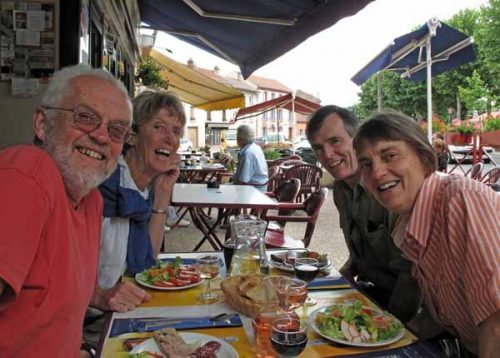
It took a bit longer than it should have, as we went via the gypsy camp and the sewage works by mistake, but soon we were sitting comfortably on the wide terrace of a café (le Petit Nice) in the main street, with a croissant and a pain aux raisins from the nearby bakery to eat with our coffee.
The good citizens of Bas-en-Basset went to and fro about their business and we realised that we were back in three-kiss country.
Before we had finished our coffee, we saw our friends wandering past looking for us. It was lovely to see people from home, and convenient too, because we were able to hand over our maps and guides for the walk we had already done, as well as the ones for the Cévennes that we were not going to use.
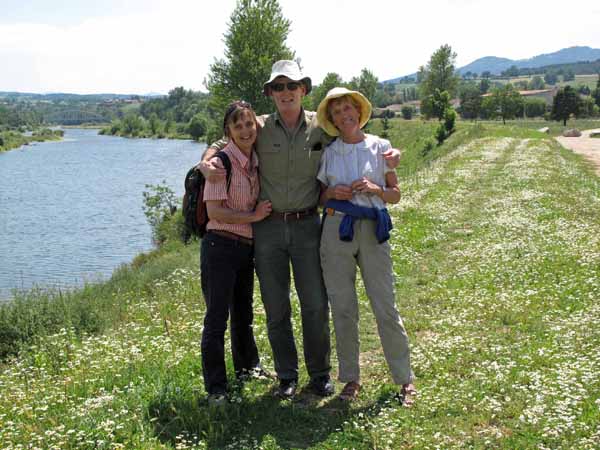
We had lunch at the same café, a formula for €11.50. Starting with charcuterie and salads, we then had stuffed capsicums for the main course, followed by apricot tart and cheese, then coffee. The wine was included too, so it was good value, and we had plenty to talk about.
We then had the novel experience of a ride in a car, getting a lift with our friends back to the camping ground. They looked with polite horror at our tiny tent and the shacks around it.
We walked along the levee bank and Jeanette and I dipped our hands in the Loire. We were both feeling homesick, and seeing each other made it more acute. We were missing our friends, our families, our normal activities, our gardens.
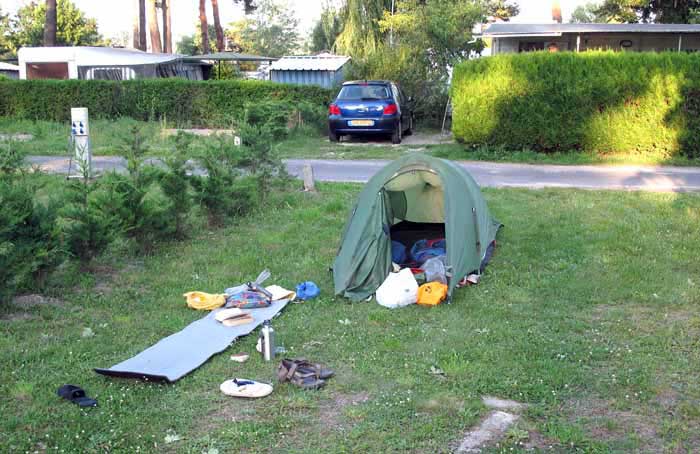
When they drove off we had a siesta on our bed rolls to digest our unusually large lunch, then strolled around the camping ground. The little holiday cottages, cramped together and obviously home-made, had a certain charm, with their pots of flowers and bright paint.
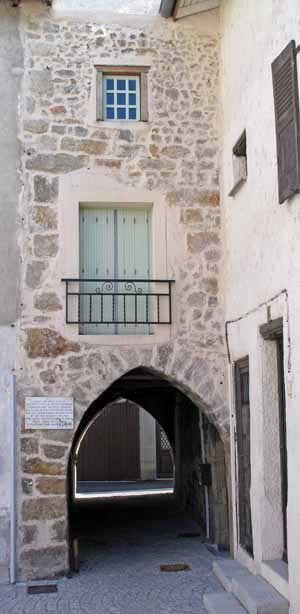
We never worked out why the place was so huge, but perhaps it was because of the fishing in the ponds that we had walked past.
Then we wandered back to the town to buy some picnic food and wine for the evening, and to look at the church in a square behind the shops. There was also a fragment of the long-vanished University of Bas, where monks were educated from the thirteenth century until the eighteenth.
That night it got very cold. The sky was clear and full of icy stars. We zipped up the door of the tent, wore every garment we possessed inside our sleeping bags and huddled together, but never really warmed up.
